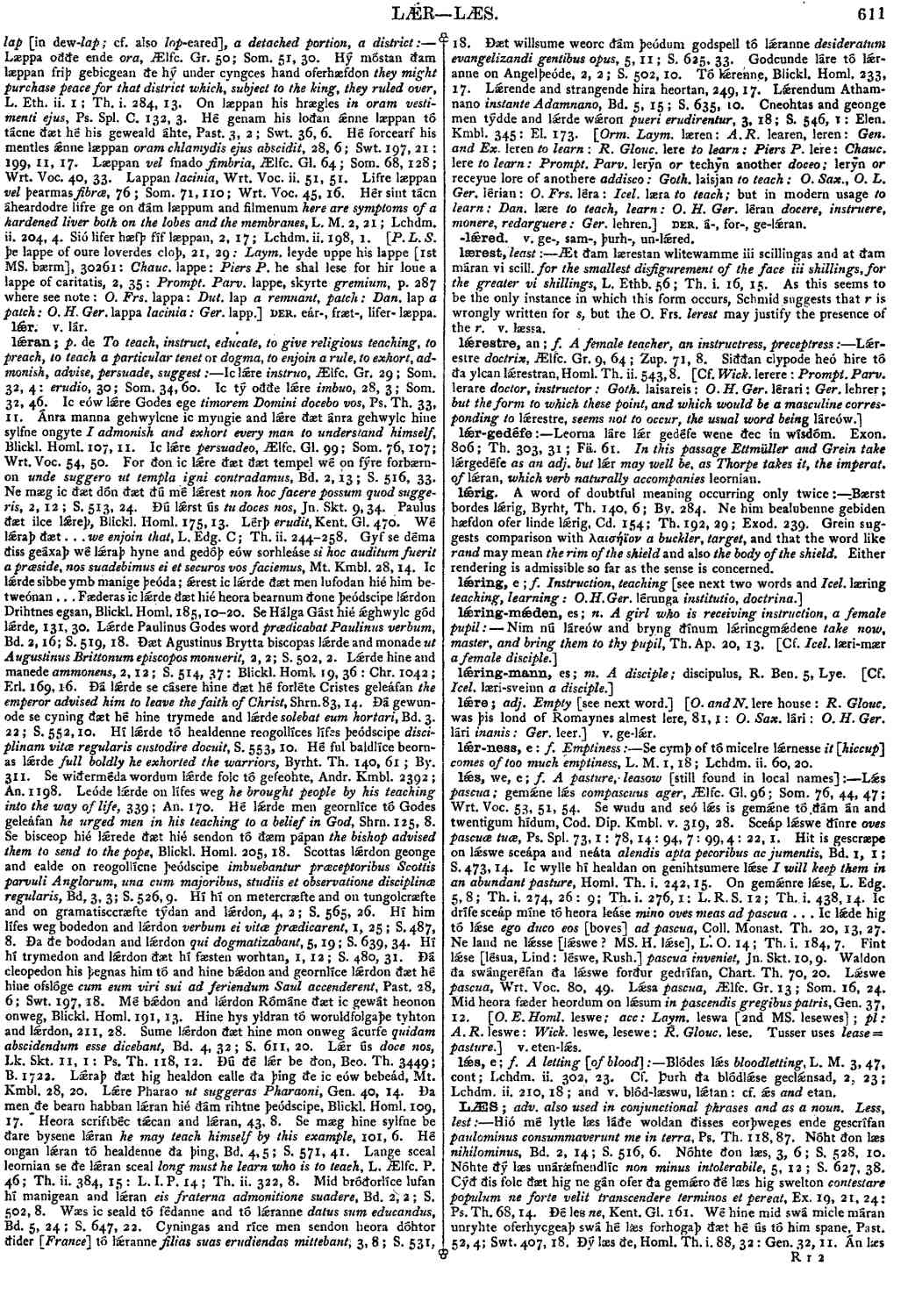lǽs
- noun [ feminine ]
-
Lǽs
pascua;
gemǽne lǽs
compascuus ager,
- Ælfc. Gl. 96 ;
- Som. 76, 44, 47 ;
- Wrt. Voc. 53, 51, 54 .
-
Se wudu and seó lǽs is gemǽne tó ðám án and twentigum hídum,
- Cod. Dip. Kmbl. v. 319, 28 .
-
Sceáp lǽswe ðínre
oves pascuæ tuæ,
- Ps. Spl. 73, 1 :
- 78, 14 :
- 94, 7 :
- 99, 4 :
- 22, 1 .
-
Hit is gescræpe on lǽswe sceápa and neáta
alendis apta pecoribus ac jumentis,
- Bd. 1, 1 ;
- S. 473, 14 .
-
Ic wylle hí healdan on genihtsumere lǽse
I will keep them in an abundant pasture,
- Homl. Th. i. 242, 15 .
-
On gemǽnre lǽse,
- L. Edg. 5, 8 ;
- Th. i. 274, 26 :
- 9 ;
- Th. i. 276, 1 :
- L. R. S. 12 ;
- Th. i. 438, 14 .
-
Ic drífe sceáp míne tó heora leáse
mino oves meas ad pascua ...
Ic lǽde hig tó lǽse
ego duco eos [boves] ad pascua,
- Coll. Monast. Th. 20, 13, 27 .
-
Ne land ne lǽsse [lǽswe? MS. H. lǽse],
- L. O. 14 ;
- Th. i. 184, 7 .
-
Fint lǽse [lésua, Lind: léswe, Rush.]
pascua inveniet,
- Jn. Skt. 10, 9 .
-
Waldon ða swángeréfan ða lǽswe forður gedrífan,
- Chart. Th. 70, 20 .
-
Lǽswe
pascua,
- Wrt. Voc. 80, 49 .
-
Lǽsa
pascua,
- Ælfc. Gr. 13 ;
- Som. 16, 24 .
-
Mid heora fæder heordum on lǽsum
in pascendis gregibus patris,
- Gen. 37, 12 .
Bosworth, Joseph. “lǽs.” In An Anglo-Saxon Dictionary Online, edited by Thomas Northcote Toller, Christ Sean, and Ondřej Tichy. Prague: Faculty of Arts, Charles University, 2014. https://bosworthtoller.com/20988.
Checked: 1